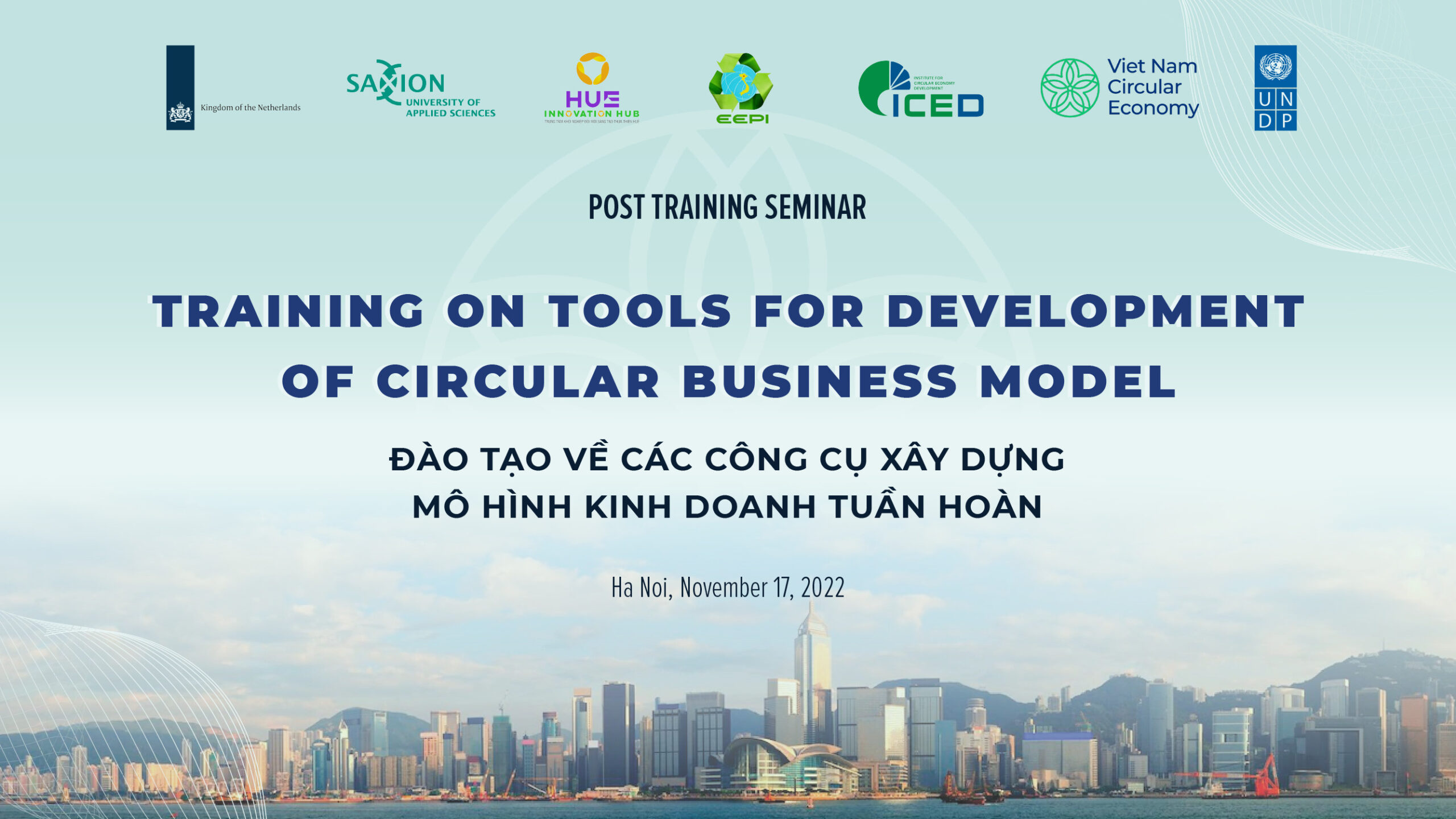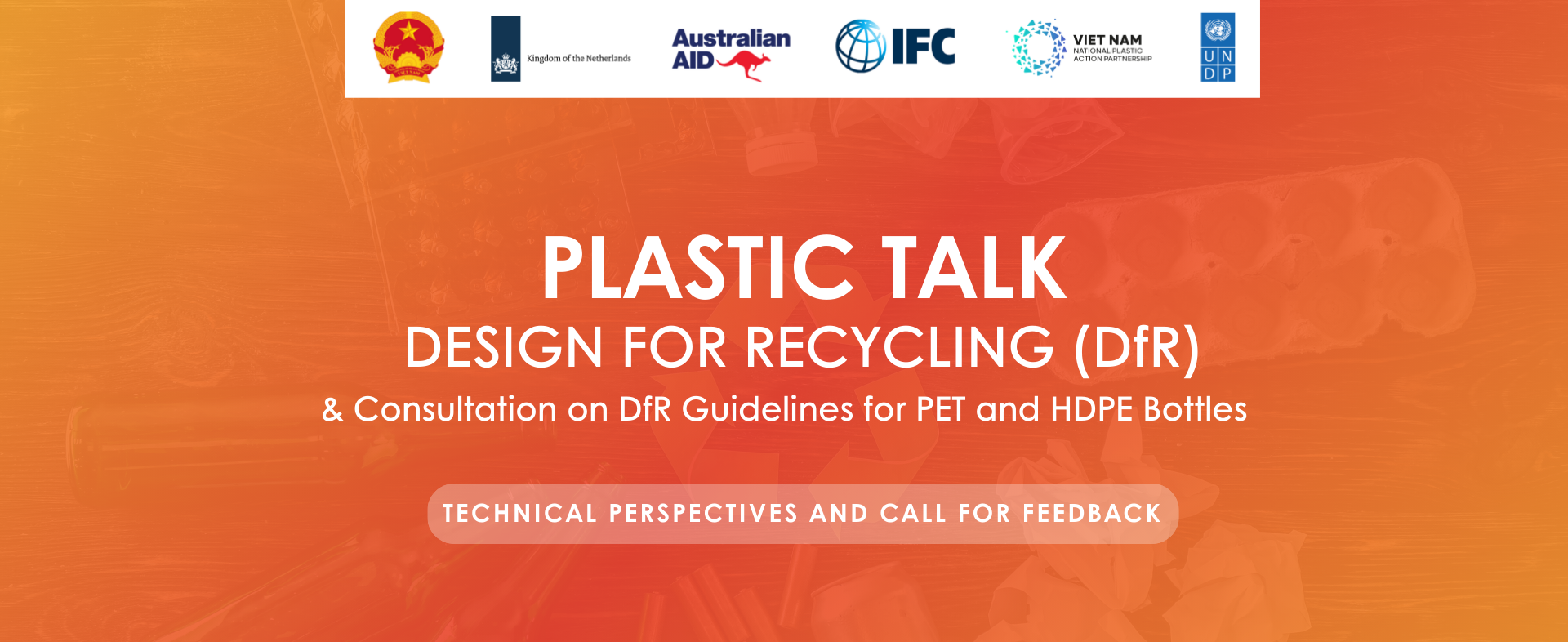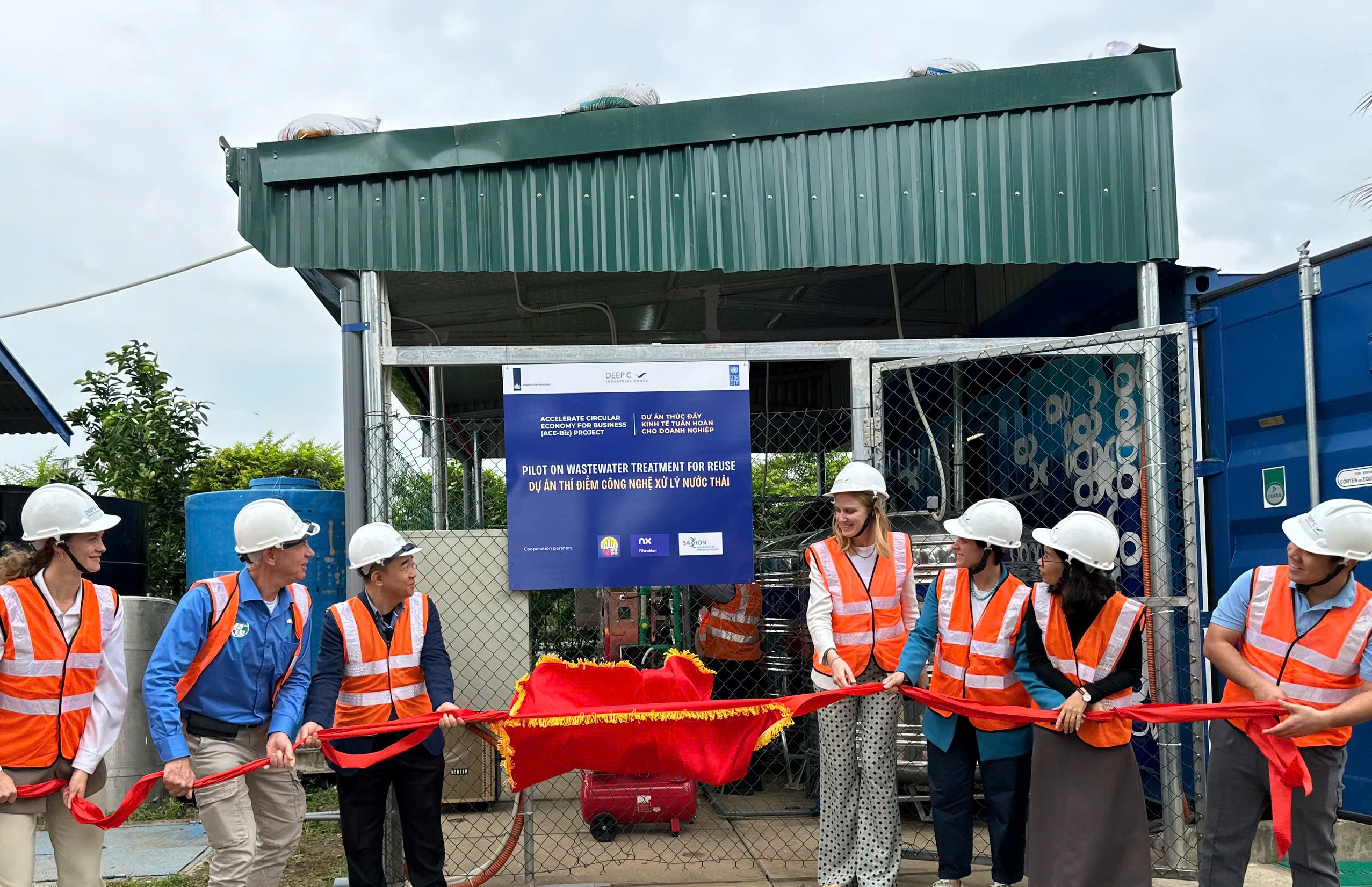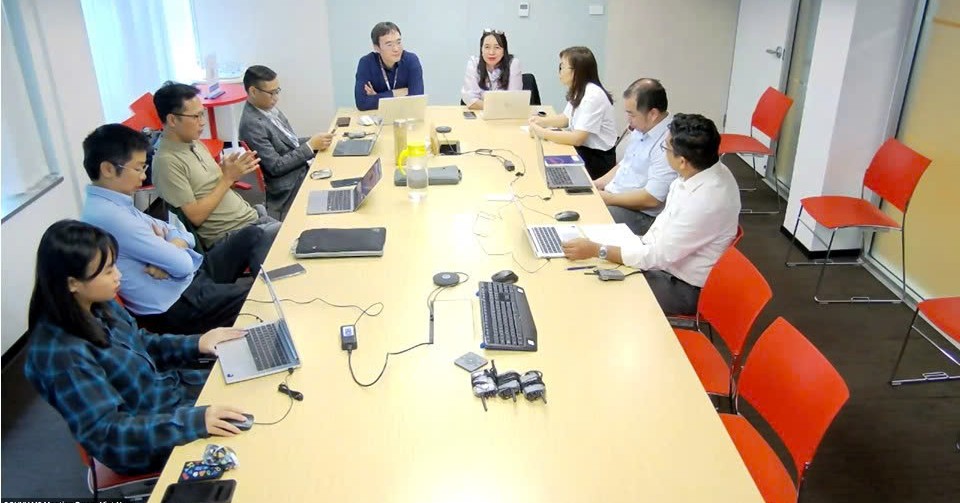
Hanoi, November 17, 2022 – An online course on tools for the development of circular business models (#CECapacityBuilding) is organized by the United Nations Development Program (UNDP) in Vietnam, the Netherlands Saxion University of Applied Sciences (Saxion UAS), and local partners with assistance from the Dutch Embassy. This training session provides information and expertise about the circular economy, problems, and models of the circular economy being deployed around the world. It also introduces the toolkit for creating circular business models and gives participants practice using it.
This training was attended by more than 40 students who are representatives of enterprises, universities, and research institutions from the North, Central, and South regions. Businesses representing a wide range of industries, including agriculture, food, waste recycling, automation, tourism, commerce, and services, attended. The lecturers are Professor Timber Haaker and experts from Saxion University and National Economics University (Hanoi).
“The tools for a circular economy that were introduced will assist companies in assessing their business models and outlining concepts for guiding growth in accordance with the right circular economy’s guiding principles. In addition to the application at each organization, we are eagerly anticipating the program’s introduction of the circular economy model at the enterprise level”, said Patrick Harverman, Deputy Resident Representative of UNDP in Vietnam.
The three tools for creating a circular business model are the Business Model Canvas, Business Model Template, and Circular Loop Designer.
The Business Model Review Tool, Loops Designer, and Business Model Specifier are the three tools needed to create a circular business model.
Participants used these resources to create business models for four case studies: a battery rental business model, a plastic recycling business model, a business model for turning organic waste into nutrient-rich compost by using black soldier fly larvae, and a phone app for garbage collection and sorting. The groups employed the aforementioned toolkits with four case studies to find circular business models. The groups then presented their research, exchanged ideas, and receive recommendations from Saxion UAS experts.
Businesses can be less willing to adopt circular business models when it comes to investing. According to Professor Timber Haaker, a circular business model is a sustainable one that can lower the cost of raw materials, lengthen product lifecycles, and finally eliminate waste.
“The training course has brought a very important set of tools to help businesses identify the difficulty of adopting the plan,” Mr. Nguyen Le, Deputy Director of Reenvitech Renewable Environment Technology Co., Ltd, said during the training session.

The training course is one of the activities within the framework of UNDP’s cooperation with the Environmental Economic Policy Institute (EEPI), the Hue Innovation Hub, the Institute for Circular Economy Development (ICED) together with Saxion University of Applied Sciences of the Netherlands and the Institute of Strategy and Policy on Natural Resources and Environment (ISPONRE).
For more information, please contact:
Phan Huong Giang
Media and Communication Analyst
Climate Change and Environment, United Nations Development Program in Viet Nam
Email: phan.huong.giang@undp.org Mobile: 0948466688
















